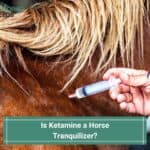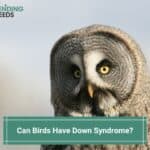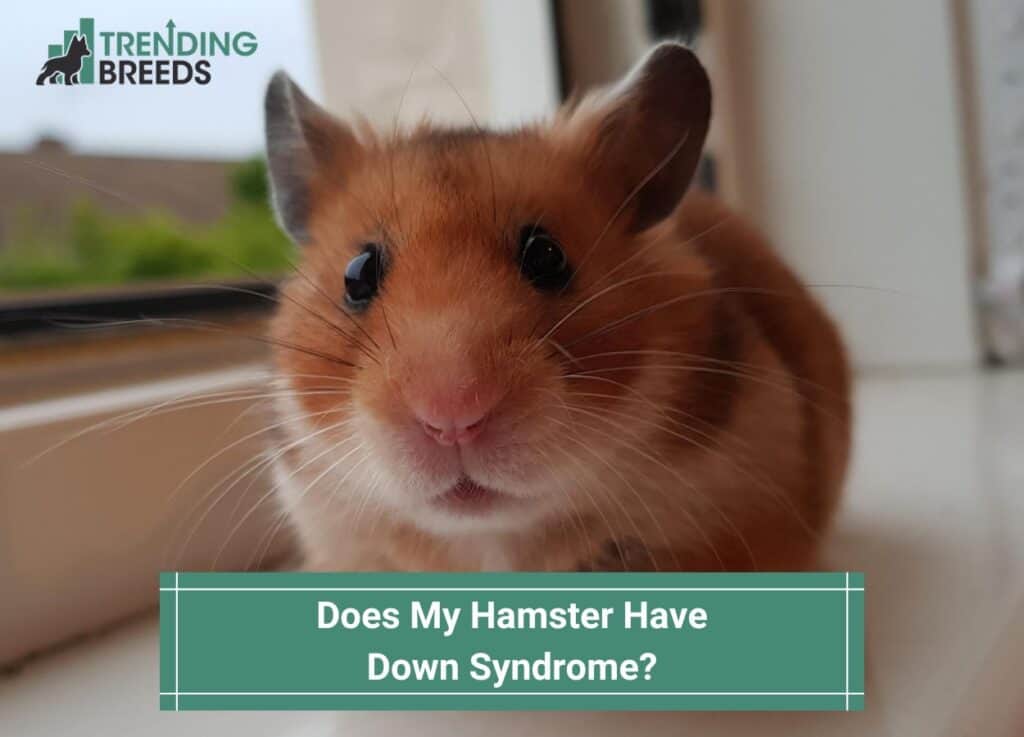
Hamsters, just like other animals, can suffer from a multitude of diseases that can severely impact their lifespan. For those wondering, “Does my hamster have Down Syndrome?” the answer may surprise you.
Some hamsters may show physical deformities that may indicate that they have Down Syndrome.
No, your hamster does not have Down Syndrome, as the condition can only occur in humans due to their chromosomal makeup.
However, if your hamster has a deformity, it is most likely a craniofacial abnormality that makes it look like it has Down Syndrome.
In this article, we’re going to go over why your hamster can’t exactly have Down Syndrome and the preventive ways of ensuring it is properly taken care of given that it has this deformity.
Before you scroll further down this guide, check out these other hamster-related articles: Why Is My Hamster’s Eye Bulging? and Do I Have a Ghost Hamster?
Table of Contents
Can Other Animals Suffer from Down Syndrome?

Down Syndrome is only known in humans, and the same condition does not directly apply to animals.
However, they can suffer from their kind of chromosomal imbalances and genetic conditions.
These generally present symptoms that are somewhat similar to Down Syndrome. They are:
- Primates: Some non-human primates, such as chimpanzees and apes, have conditions similar to Down Syndrome, but their symptoms are vastly different.
- Mice: Mice have been genetically engineered to carry extra chromosomes for research purposes. However, even with this genetic change, their challenges are not nearly as severe.
- Cats and Dogs: Turner Syndrome and Klinefelter’s are the most directly correlatable to Down Syndrome. But, these conditions present vastly different symptoms.
Other animals, including hamsters, cannot have Down Syndrome because they do not have the same chromosome structure as humans.
Therefore, they cannot have the same chromosomal condition as humans do.
What Is The Difference Between Facial Abnormalities and Down Syndrome?

Given that Down Syndrome is entirely unique to humans, facial deformities you may have observed in your hamsters are not for this reason.
These abnormalities can be caused by a variety of reasons, including:
- Environmental Factors: Poor nutrition or a stressful environment.
- Diseases: Infections can sometimes cause physical deformities.
- Genetics: Inherited traits can manifest as abnormalities.
The term craniofacial abnormalities is a more accurate description of the wide-ranging irregularities that can appear in the facial structure of hamsters.
What Is The Lifespan of a Hamster With Down Syndrome?
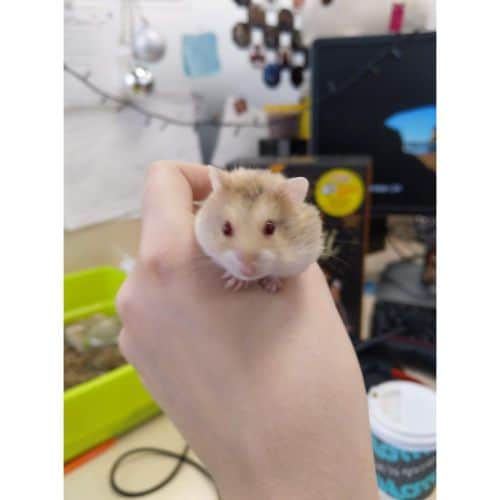
Hamsters cannot have Down Syndrome. So, if it looks like your hamster has it, it is probably suffering from a craniofacial abnormality.
Determining the lifespan of a hamster with deformities is challenging because the severity of the condition can vary.
Here’s a look at some cases and how they can impact your hamster’s overall lifespan:
- Mild Abnormalitiy: If your hamster has minor issues, it may experience little to no impact on their lifespan.
- Severe Abnormalities: These can compromise the hamster’s ability to eat, breathe, or interact, greatly affecting lifespan.
However, besides just the severity of the abnormality, the quality of veterinary care, alongside whether they have been diagnosed early with a proper treatment plan, can significantly improve the quality of life of your hamster alongside its general life expectancy.
Factors Impacting the Lifespan of a Hamster with Facial Abnormalities
A hamster’s quality of life and lifespan can be severely impacted due to craniofacial abnormalities. Here are a few:
- Feeding Issues: Some hamsters may have difficulty eating due to their facial abnormality. This can lead to malnutrition if not diagnosed on time.
- Breathing Issues: Craniofacial abnormalities often obstruct a hamster’s airways. This can lead to respiratory issues that can significantly shorten life expectancy and may be fatal in some cases.
If My Hamster Does Not Have Down Syndrome, Why Is Its Face Deformed?
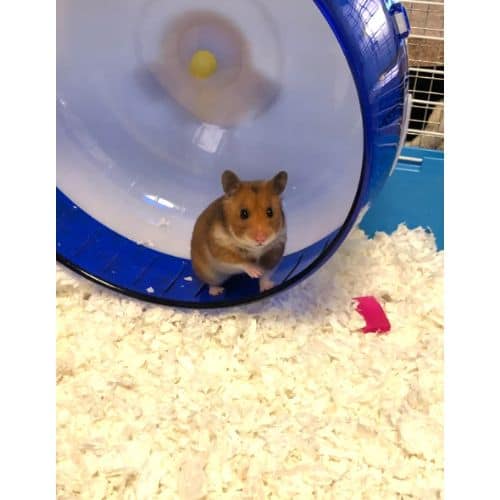
Your hamster has a craniofacial abnormality if its face seems to be deformed.
These can occur for several reasons, primarily due to a lack of essential nutrients or physical trauma that can lead to abnormal growth or misalignment.
Are Craniofacial Abnormalities in Hamsters Genetic?
Genetic factors do play a role in craniofacial abnormalities. If you’re planning on breeding hamsters, it’s vital to know the genetic history of the breeding pair.
Often, such deformities can be hereditary, passed down from parent to offspring.
Therefore, avoid breeding hamsters with known genetic predispositions to craniofacial abnormalities.
Can Facial Abnormalities in One Hamster Spread to the Other?
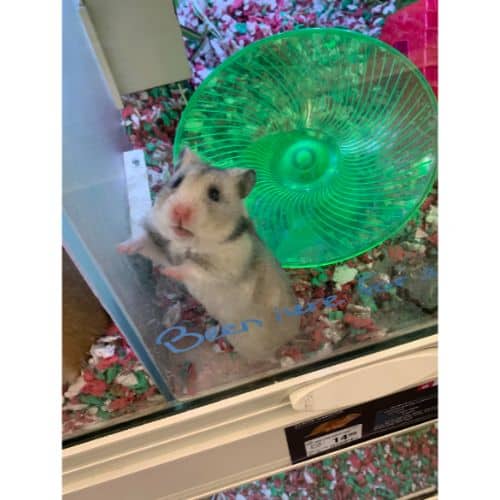
Craniofacial abnormalities are not contagious and cannot spread from one hamster to the other.
But, if the condition is genetic, and the hamsters are related, there’s a chance that more than one hamster in the same lineage could show some of those abnormalities.
So, you should isolate hamsters with infectious diseases that may appear as facial deformities to prevent the spread of the disease, not the deformity itself.
How to Deal With Craniofacial Abnormalities in Hamsters?
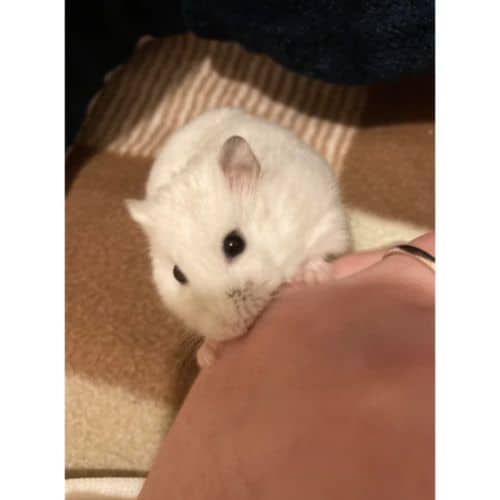
Some abnormalities may have minimal impact on your hamster’s quality of life, while others may necessitate a complex regiment of medical treatments and lifestyle adjustments.
However, navigating through craniofacial abnormalities in hamsters can be emotionally and practically challenging.
The Importance of Early Diagnosis and Consultation
Early diagnosis plays a key role in getting treatment early for a facially deformed hamster.
Remember, hamsters cannot have Down Syndrome, so early diagnoses can significantly affect treatment options and outcomes.
When you realize your hamster has a craniofacial abnormality, consult a vet immediately. They’ll start evaluating any suspected facial deformity.
This assessment usually includes visual examination, palpations, and imaging such as X-rays and CT scans.
When Should I Show My Hamster To The Vet If Its Face Looks Odd?
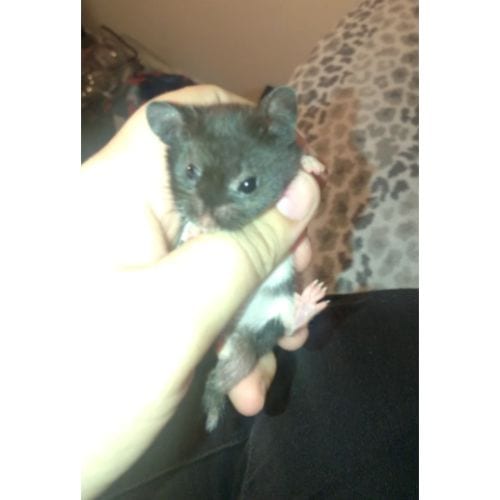
It is better to err on the side of caution regarding your pet’s health.
Therefore, you should consult a specialist in small animal surgery or another relevant field as soon as you determine signs of a deformity.
Complex cases benefit from a multi-vet approach to ensure the most accurate diagnosis and optimal treatment plans.
Ultimately, the severity of your hamster’s facial abnormality will determine the most optimal treatment plan.
But, you should refer to a vet immediately if your hamster has difficulty breathing or is not eating properly for more than 1-2 days.
This is a prime indicator of physical trauma, which is why your hamster cannot perform regular bodily functions.
Does My Hamster Have Down Syndrome?
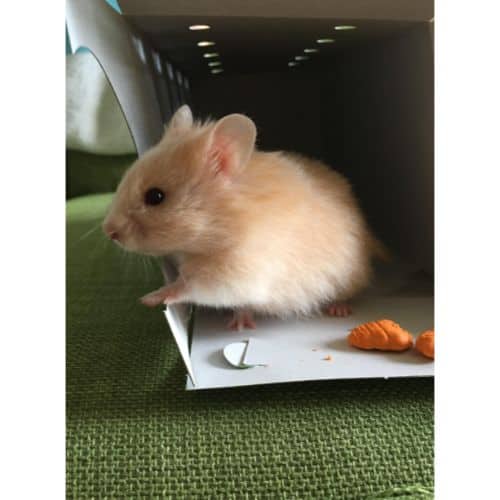
Contrary to popular belief, your hamster does not have Down Syndrome but may suffer from a craniofacial abnormality.
Therefore, you should consult a vet immediately if you feel like your hamster is having difficulty breathing or eating or their condition impacts their daily routine.
If you find this guide, “Does My Hamster Have Down Syndrome,” informative and helpful, you can check out these other animal-related articles from our team:
You can learn more about hamsters by watching “25 Facts About Hamsters 🐹” down below:



